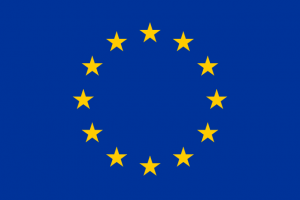


In Kennedy v. Bremerton School District, the Supreme Court must decide whether a brief, post-game public prayer by a high school football coach constitutes a state endorsement of religion. Seriously.
Read More…
To my great embarrassment, I must admit that prior to going to law school I enjoyed the quasi-scripted drama of Judge Judy. The litigants’ outrageous circumstances and colorful personalities distract viewers into believing that the legal issues plex. The magic of the judicial soap opera evaporates quickly under even minimal interrogation of the irrelevant facts and outrageous case details to reveal a simple, straightforward legal solution to a mundane dispute that demands no real deliberation on the part of the Emmy Award–winning jurist. Kennedy v. Bremerton School District is notthat simple, but it is, at least, straightforward. And even more straightforward than the central issue of the case are the ramifications of the e.
At the heart of this case, now before the Supreme Court, is Joe Kennedy, a client of my firm First Liberty Institute, who was dismissed from his position as a football coach for engaging in brief personal prayer on the field at the close of each game. The position of the public school district as they fired Coach Kennedy was that the fleeting personal prayer of a part-time employee amounted to state-sponsored endorsement of religion. The school district reached this conclusion even though Dr. Aaron Leavell, superintendent of the Bremerton School District, conceded long before litigation began that no student was “actively encouraged, or required, to participate.” At stake in this case are two broad and basic issues: (1) what type of public employee behavior can result in an endorsement of religion, and (2) what First Amendment rights do teachers absolutely retain even when at work or on school property.
In oral arguments, at least two justices were interested in the Lemon test, a three-part test articulated by the Supreme Court in 1971 for evaluating whether state action amounts to an establishment of religion. During questioning, these justices suggested that it was finally time for the Court to expressly overrule the Lemon test, which asks whether the government action (1) has a secular purpose, (2) has principal or primary effect that does not advance or inhibit religion, and (3) fosters an excessive government entanglement with religion. The precondition for applying this problematic test, however, is that the action in question must be state action and not merely a personal act by a private citizen employed by the state. While the Supreme Court has not applied the test for quite some time, it has never expressly overruled Lemoneither. The totality of the circumstances suggest that Coach Kennedy’s fleeting personal prayers were not, in fact, state action. Therefore, they could never have been constitutionally problematic.
A previous case that received much attention in the oral arguments and the briefs before the Court is the 2006 case Garcetti v. Ceballos. The Court in Garcetti held that a government employer may permissibly limit the public speech of employees made “in the course of doing his or her job.” So, while Garcetti strictly speaking is not a religious freedom case, it does address the boundary between a public employee’s First Amendment rights and a public employer’s ability to curtail them. As a result, much attention in the oral arguments was given to the Garcetti standard. If Kennedy’s actions could be construed e under the provisions in Garcetti, it would be a significant abrogation of the rights recognized in a well-established public education case, Tinker v. Des Moines, in which the Court famously stated that neither “students or teachers shed their constitutional rights … at the schoolhouse gate.” It is worth noting here that Garcettiexplicitly warns against overbroad job descriptions that cast such a wide net that public employees never seem able to escape their incidental identity as public employees.
So, before the Court now is the question of whether the fleeting moments during which Coach Kennedy kneeled midfield to offer a brief personal prayer of thanksgiving establish government action such that it amounts to an endorsement of religion. The Court should conclude that this quiet, personal moment measurable in seconds not minutes is protected by both the Free Speech and the Free Exercise clauses of the First Amendment. It should vindicate Coach Kennedy, who was terminated for engaging in religious activity that is clearly protected by the First Amendment. To find otherwise, considering these circumstances, would be a significant curtailment of the rights of the religiously observant and give pause to anyone of any faith who might consider public service, not to mention prove an injustice to Coach Kennedy himself.









